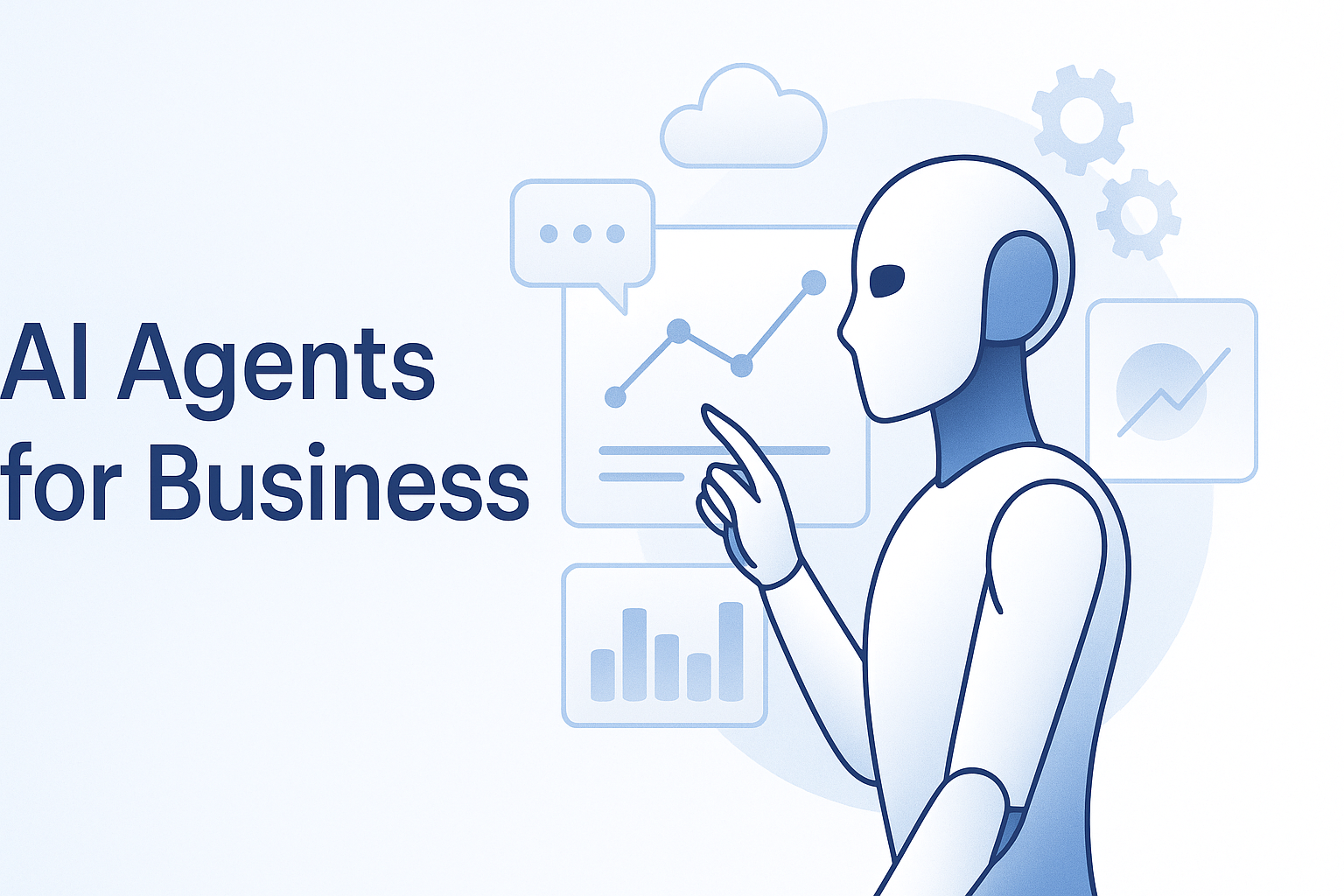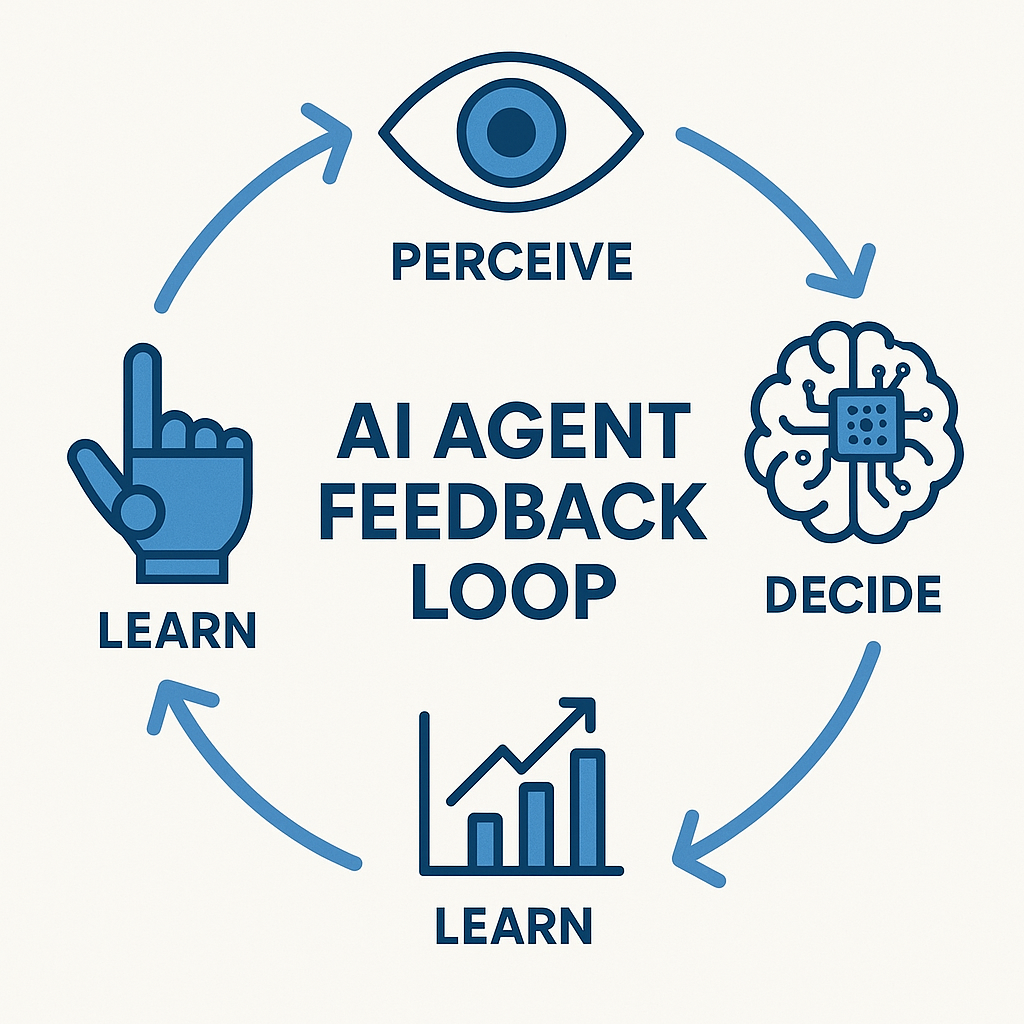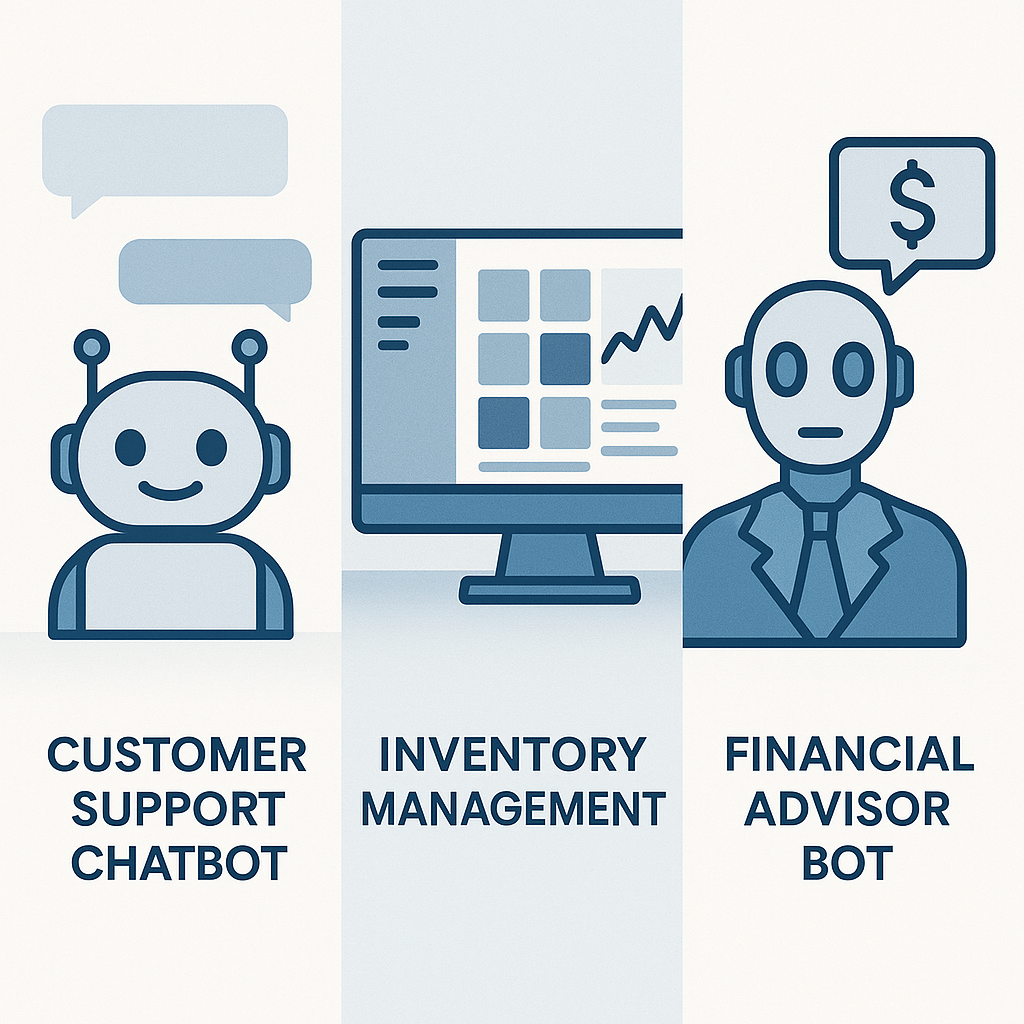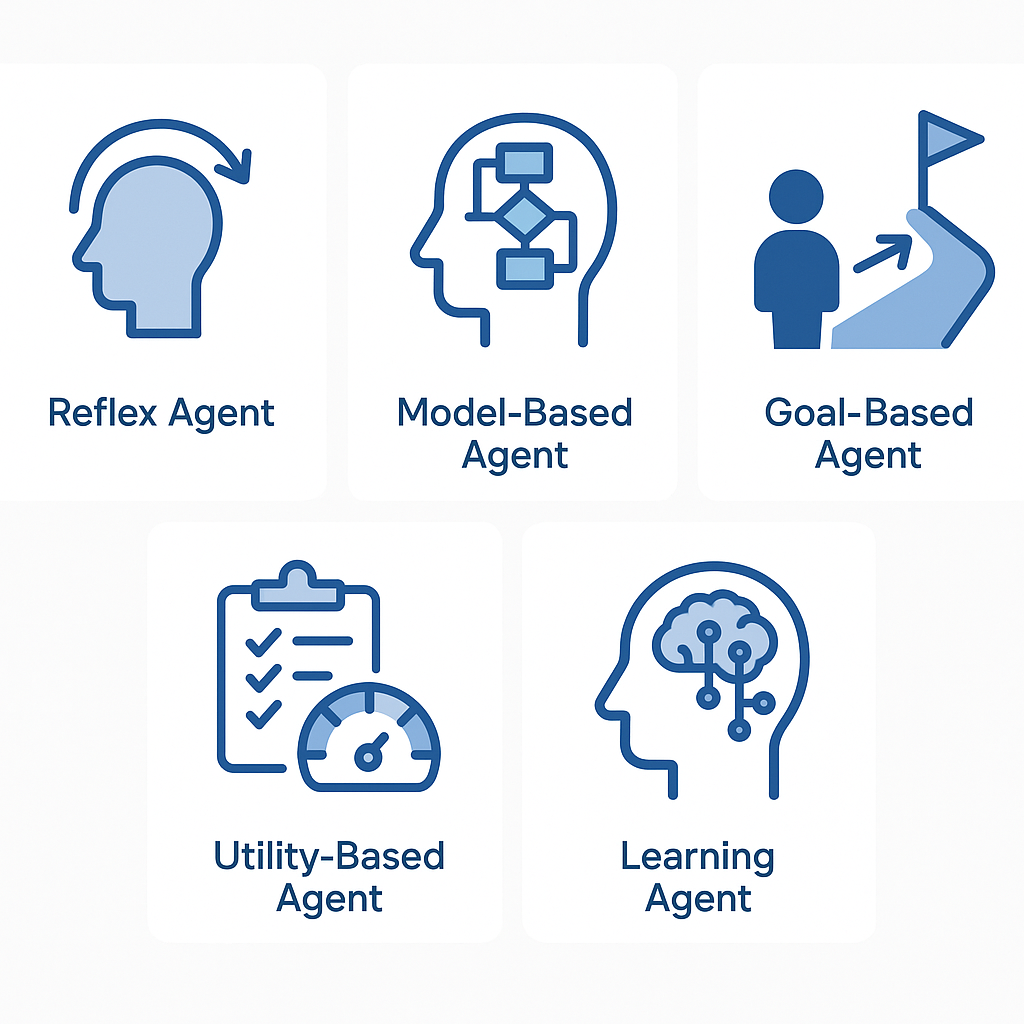June 23, 2025
•By Anix AI Team
•AI Agents
Understanding AI Agents: What They Are and Why Your Business Needs Them

The business world is witnessing a revolutionary shift with the emergence of AI agents—intelligent digital assistants that can perform complex tasks, make decisions, and interact with customers and employees autonomously. Unlike traditional software that requires constant human input, AI agents operate independently, learning from interactions and improving their performance over time. As businesses struggle to keep pace with increasing demands for efficiency, personalization, and 24/7 availability, AI agents are becoming essential tools for maintaining competitive advantage. This comprehensive guide explores what AI agents are, how they work, and why they represent the future of intelligent business operations.
Defining AI Agents and Their Core Capabilities
AI agents are sophisticated software programs powered by artificial intelligence that can perceive their environment, make decisions, and take actions to achieve specific goals without constant human supervision. These intelligent systems combine machine learning, natural language processing, and decision-making algorithms to perform tasks that traditionally required human intelligence. Unlike simple chatbots or basic automation tools, AI agents possess the ability to understand context, learn from past interactions, and adapt their responses based on changing circumstances. They can analyze data, recognize patterns, and make informed decisions while maintaining consistent performance across various scenarios.
Modern AI agents can handle multiple tasks simultaneously, switch between different types of interactions seamlessly, and maintain context across extended conversations or processes. This flexibility makes them invaluable for businesses seeking to automate complex workflows while maintaining high-quality outcomes.
Different Types of AI Agents for Business Applications
Conversational AI agents represent the most visible type, handling customer service inquiries, sales interactions, and internal support requests through natural language conversations. These agents can understand intent, provide relevant information, and guide users through complex processes with human-like communication skills.
Task-oriented AI agents focus on completing specific business processes such as data analysis, report generation, scheduling, and workflow management. These agents excel at following complex procedures, integrating with multiple systems, and delivering consistent results without human intervention.
Autonomous decision-making agents operate at a strategic level, analyzing business data to make recommendations, optimize processes, and even execute decisions within predefined parameters. These sophisticated agents can manage inventory, adjust pricing, and coordinate resources based on real-time business conditions.

AI Agent Feedback Loop
How AI Agents Transform Customer Experience
Customer expectations have evolved to demand instant, personalized, and accurate responses at any time of day. AI agents meet these expectations by providing consistent, high-quality customer service that never sleeps, never gets frustrated, and continuously improves through machine learning.
These intelligent agents can handle multiple customer interactions simultaneously while maintaining personalized communication for each individual. They access customer history, preferences, and previous interactions to provide contextually relevant assistance that feels natural and helpful.
AI agents also excel at qualifying leads, guiding customers through product selections, and providing technical support that resolves issues quickly. By handling routine inquiries efficiently, they free human agents to focus on complex problems that require empathy, creativity, and advanced problem-solving skills.
Streamlining Internal Operations with Intelligent Automation

Beyond customer-facing applications, AI agents revolutionize internal business operations by automating complex workflows that span multiple departments and systems. These agents can process documents, update databases, generate reports, and coordinate tasks across different business functions without manual intervention.
Employee productivity increases significantly when AI agents handle routine administrative tasks such as scheduling meetings, managing calendars, processing expense reports, and coordinating project activities. This automation allows employees to focus on strategic work that drives business growth and innovation.
AI agents also serve as intelligent assistants for knowledge workers, helping them find information quickly, analyze data patterns, and make informed decisions. These agents can summarize documents, research market trends, and provide insights that support better business outcomes.
Key Benefits of Implementing AI Agents in Your Business

Cost reduction represents one of the most immediate benefits of AI agent implementation. These systems can handle the workload of multiple employees while operating continuously without breaks, vacation time, or sick leave. The operational savings compound over time as agents become more efficient and take on additional responsibilities.
Consistency and accuracy improve dramatically when AI agents handle repetitive tasks and customer interactions. Unlike humans, AI agents don't have bad days, don't make errors due to fatigue, and always follow established procedures precisely. This reliability ensures consistent customer experiences and operational outcomes.
Scalability becomes effortless with AI agents that can handle increasing workloads without proportional increases in costs or resources. As your business grows, AI agents adapt to handle more interactions, process more data, and support more complex operations without requiring additional infrastructure or staff.
Common Use Cases and Industry Applications
Customer service represents the most common implementation area, where AI agents handle inquiries, troubleshoot problems, and provide product information across multiple channels including chat, email, and voice interactions. These agents can resolve most common issues instantly while escalating complex problems to human specialists.
Sales and marketing teams leverage AI agents to qualify leads, schedule appointments, send follow-up communications, and nurture prospects through automated yet personalized campaigns. These agents can engage with potential customers at optimal times and provide relevant information that moves prospects through the sales funnel.
Human resources departments use AI agents to screen job applications, schedule interviews, answer employee questions about policies and benefits, and guide new hires through onboarding processes. This automation streamlines HR operations while providing consistent experiences for all employees and candidates.
Implementation Strategies and Best Practices
Successful AI agent implementation begins with identifying specific use cases where automation can deliver immediate value. Start with well-defined processes that have clear inputs, outputs, and success criteria to ensure your first AI agent deployment demonstrates measurable benefits.
Choose AI agent platforms that integrate seamlessly with your existing business systems and can scale as your needs evolve. Consider factors such as customization capabilities, integration options, security features, and ongoing support when evaluating different solutions.
Training and change management are crucial for successful adoption. Prepare your team for working alongside AI agents by clearly defining roles, responsibilities, and escalation procedures. Ensure employees understand how AI agents enhance rather than replace their contributions to business success.
Overcoming Challenges and Concerns
Data privacy and security concerns are valid considerations when implementing AI agents that handle sensitive business and customer information. Choose solutions that comply with relevant regulations, implement robust security measures, and provide transparent data handling practices.
Integration complexity can pose challenges when connecting AI agents with legacy systems or complex business processes. Work with experienced implementation partners who understand your industry and can design solutions that work within your existing technology infrastructure.
Employee resistance may arise from fears about job displacement or changes to established workflows. Address these concerns through clear communication about how AI agents will augment human capabilities rather than replace employees, along with training programs that help staff develop complementary skills.
Future Trends and Evolution of AI Agents
Advanced AI agents are becoming more sophisticated with enhanced natural language understanding, emotional intelligence, and contextual awareness. These improvements enable more natural interactions and better problem-solving capabilities that blur the line between human and artificial intelligence.
Multi-modal AI agents that can process text, voice, images, and video simultaneously are expanding the range of tasks they can handle. These agents will soon manage complex processes that require understanding multiple types of information and communicating through various channels seamlessly.
Collaborative AI agent networks represent the next evolution, where multiple specialized agents work together to handle complex business processes. These systems will coordinate activities, share information, and optimize outcomes across entire organizations automatically.
Conclusion: Embracing the AI Agent Revolution
AI agents represent a fundamental shift in how businesses operate, interact with customers, and manage internal processes. Companies that embrace this technology now will gain significant competitive advantages through improved efficiency, enhanced customer experiences, and reduced operational costs.
The question is not whether your business needs AI agents, but rather how quickly you can implement them effectively. Start with pilot projects that address specific pain points and demonstrate clear value, then expand implementation as you gain experience and confidence with the technology.
The future belongs to businesses that successfully integrate AI agents into their operations while maintaining the human touch where it matters most. Those who delay adoption risk falling behind competitors who are already leveraging AI agents to transform their business models and market positions.
Ready to discover how AI agents can transform your business operations? Contact our AI specialists to explore customized solutions that deliver measurable results for your organization.